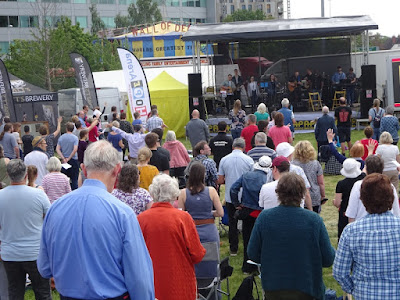How far are you prepared to go? It’s a question which occurs to me as I drive slowly down a narrow lane heading deep into the Warwickshire countryside. Farm entrances, gates into fields and even the odd splendidly secluded house all offer the chance to turn the car round and head back home to the undoubted attractions of the women’s world cup. But I decide to go on and it strikes me that this is a decision anyone exploring religion must regularly face.
At the far end of this fine country lane is The Forest Hermitage, a Buddhist retreat offering the chance to join an evening meditation session. It’s in a beautiful setting surrounded by woods and fields, perfect for the seclusion and harmony with nature anyone heading for a retreat would be seeking.
I’ve taken quite a few ad-hoc meditation classes over the years; at a huge retreat near Hemel Hempstead, at a Buddhist centre and world cafe in Leicester, as part of a mindfulness meditation group in a church in Warwick and once even in Hong Kong. And in many ways, that spread of try-out taster sessions all over the place rather makes the point I’m pondering. I seem to like the idea on the surface but could I ever really claim to be committed to going any deeper?
It’s a point made very well back at the Elim church a couple of weeks ago by a Pastor literally standing ankle deep in water to illustrate how, when it comes to fully immersive religious commitment, many of us seem happy to stay pretty much in the shallows.
Buddhism’s shallows are, to many in these frenetic times, blissfully attractive. There’s a series of moral rules we’d all like to adhere to; no killing, no lying, no stealing, no drugs and so on, and there’s the promise to live your life without giving any harm to others. All this backed up by a regime of spending hours in silent contemplation while the world and its many frustrations and shortcomings simply recedes into the distance leaving you cleansed, content and serene. No wonder the current self-help book generation latches onto it with such immediate alacrity.
But Buddhism is much more than that and to get at the truths beneath you have to go very deep indeed. The art of proper meditation is a case in point. The idea is simple to grasp, rather like the instructions for playing the harp - you just pluck the strings and the music will come out.
Tonight’s session is in a small temple to the side of this fine cottage. It’s led by a monk and numbers some residential students and a few arriving by car among the dozen in the room. It starts with chanting and prayers and then moves into a full breathing meditation exercise. And it’s here my problems always start.
The practice of sitting on the ground and the concept of achieving a state of calm repose are, for me, mutually exclusive. I have never been able to sit cross-legged; it’s as much a structural problem as it is one of poor fitness and lack of practice. Constantly having to shift position and use my hands to brace my collapsing posture is anathema to the idea of any settled contemplative state.
Practice may perhaps make perfect, but a complete lack of practice is equally certain to highlight fairly fatal imperfections. Like the would-be harpist, the simplest instructions belie the need for some real expertise. Gaining even basic proficiency takes aptitude and application in equal measure.
Following the exercise, the monk offers a gentle but inspiring reminder of the Dharma - the goals for living set out for Buddhists to strive for, attain and then adhere to. He speaks softly, patiently and not without humour. It’s a very compelling example. Why would you NOT want to live a life like that when the evidence of the million failings of modern life are so abundantly on show around us?
I love the idea of meditation and I dearly want to find myself progressing to the next echelon of ruminative study, but my limitations leave me struggling for either comfort or concentration. I have taken to inventing my own form of meditation. I get comfortable with the completely shameless use of a chair and I use my own choice of musical soundtrack to help transport my thoughts away from the here and now. It works but, given the absolute lack of comfort-denial and the obvious absence of anything remotely resembling a challenge, is it the real thing or just a gentle stroll through the shallowest of shallows.
So how far DO I want to go? And what might make me suddenly decide that any particular faith was the one for me to hurl myself into body and soul?
I can’t answer that question at the moment. But I know that whenever I do get round to giving it the thought it deserves, I’d quite like not to be in abject discomfort and pain while that contemplation is taking place.




























